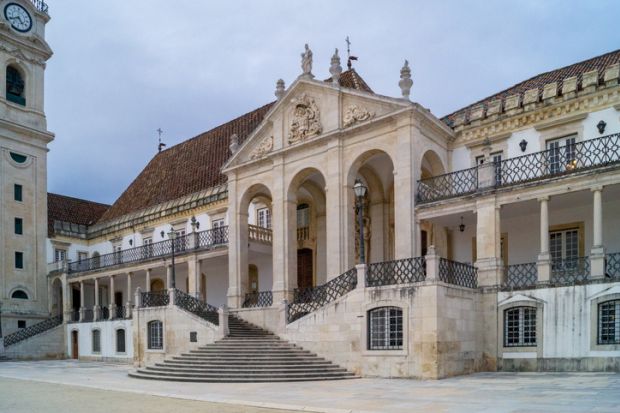A Portuguese university has issued a public apology to “people who consider themselves victims of harassment or abuse” at the institution, after allegations of sexual misconduct were raised in a book that became the centre of a publishing controversy.
Last September, Routledge permanently withdrew a chapter of the book Sexual Misconduct in Academia that detailed allegations of sexual harassment at an academic institution. The chapter, written by Lieselotte Viaene, Catarina Laranjeiro and Miye Nadya Tom, anonymised the alleged perpetrator and the institution; however, Boaventura de Sousa Santos, director emeritus of the University of Coimbra’s Centre for Social Studies (CES), publicly claimed that that the work identified him in relation to the harassment allegations, while denying any criminal wrongdoing.
In a statement, Routledge said it had made the “difficult decision” to withdraw the chapter after receiving “a series of legal threats”. More than 1,500 people subsequently signed an open letter calling for the chapter to be reinstated.
A spokesperson for the publisher told Times Higher Education: “Routledge has not yet reached a decision with the editors of the book about its future, so it currently remains unavailable.”
The Centre for Social Studies appointed an independent commission in response to the allegations after the book’s initial publication in March 2023, and an investigation commenced the following August. In its final report, the commission concludes that while it could not “clarify beyond doubt the existence or otherwise of all the situations reported”, there was evidence to suggest “patterns of conduct involving abuse of power and harassment on the part of some people who held senior positions in the CES hierarchy”.
The report, which does not name any alleged perpetrators, found that the centre’s “hierarchical structure” had resulted in “profound power imbalances and distrust among students towards the people who have held management positions in its bodies over the years”. Noting a lack of “formal, clear and inclusive communication”, the commission says CES management had demonstrated a “frivolous” response to allegations of misconduct.
“Confusion” between the professional and private spheres may have led to abuse of power, the commission states, while “situations of favouritism and bias” are noted.
In an open letter published this week, the CES board of directors said: “While it is true that the situations reported were the result of individual actions, which we will take action on, they are also the result of institutional failures which, in the absence of adequate mechanisms to prevent harassment, allowed the conditions for forms of abuse of power.
“We are determined to take every initiative to ensure that there are consequences to these complaints and that the bad practices that have been identified are not repeated at CES,” the letter continued.
THE has approached Professor Santos for comment. He told Portuguese media that the report “focused on issues of abuse of power, which I do not see myself in, especially because I was, to a large extent, responsible for the decentralisation of power”, and he suggested that these issues related to “people who held higher positions in the CES hierarchy”.
“I believe that the more than 600 pages of evidence that I added to the process have contributed to the fact that nothing objective against me has been concluded,” Professor Santos told Observador.
Register to continue
Why register?
- Registration is free and only takes a moment
- Once registered, you can read 3 articles a month
- Sign up for our newsletter
Subscribe
Or subscribe for unlimited access to:
- Unlimited access to news, views, insights & reviews
- Digital editions
- Digital access to THE’s university and college rankings analysis
Already registered or a current subscriber? Login








